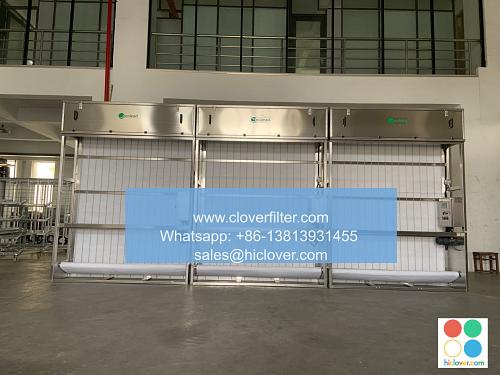Air Filter Testing: A Key Component of Industrial Quality Control

Air filter testing is a critical component of industrial quality control, playing a vital role in ensuring the efficiency, reliability, and safety of various industrial processes. HEPA filter testing, ultra-low penetration air (ULPA) filter testing, and gas turbine filter testing are some of the key areas of focus in the industrial air filtration sector. In this article, we will delve into the importance of air filter testing, its application areas, and the various testing methods employed to evaluate the performance of air filters.
Importance of Air Filter Testing
Air filter testing is essential to ensure that air filters function as intended, providing high-efficiency filtration and particle removal in various industrial applications. Inadequate air filtration can lead to contamination, equipment damage, and product spoilage, resulting in significant economic losses and compromised product quality. Regular air filter testing helps to identify potential issues, ensuring that air filters are replaced or maintained as needed to maintain optimal performance.
Application Areas of Air Filter Testing
Air filter testing has a wide range of applications across various industries, including:
* Pharmaceuticals and biotechnology: cleanroom filtration and laminar flow filtration require rigorous testing to ensure sterility and particle control.
* Food processing and beverage production: Air filter testing is crucial to prevent contamination and ensure product safety.
* Aerospace and defense: gas turbine filter testing and aircraft cabin air filtration require specialized testing to ensure high-performance filtration and safety.
* Power generation and energy production: Air filter testing is essential for gas turbine filtration and coal-fired power plant filtration to ensure efficiency and reliability.
Testing Methods and Standards
Various testing methods and standards are employed to evaluate the performance of air filters, including:
* ASHRAE 52.2 and EN 779: These standards provide a framework for testing and evaluating the performance of air filters in terms of particle removal efficiency and pressure drop.
* IEST-RP-CC001.3 and ISO 29463: These standards focus on cleanroom filtration and laminar flow filtration, providing guidelines for testing and evaluating the performance of air filters in controlled environments.
* Scanning electron microscopy (SEM) and transmission electron microscopy (TEM): These techniques are used to evaluate the microstructure and particle capture mechanisms of air filters.
Conclusion
In conclusion, air filter testing is a critical component of industrial quality control, ensuring the efficiency, reliability, and safety of various industrial processes. By employing various testing methods and standards, industries can ensure that their air filters function as intended, providing high-efficiency filtration and particle removal in a wide range of applications. As technology continues to evolve, the importance of air filter testing will only continue to grow, driving innovation and improvement in the industrial air filtration sector. Prompt

